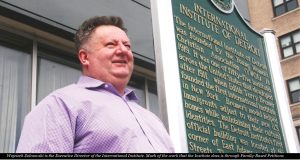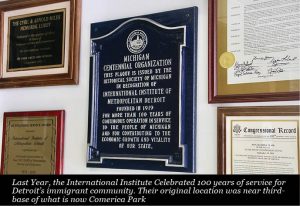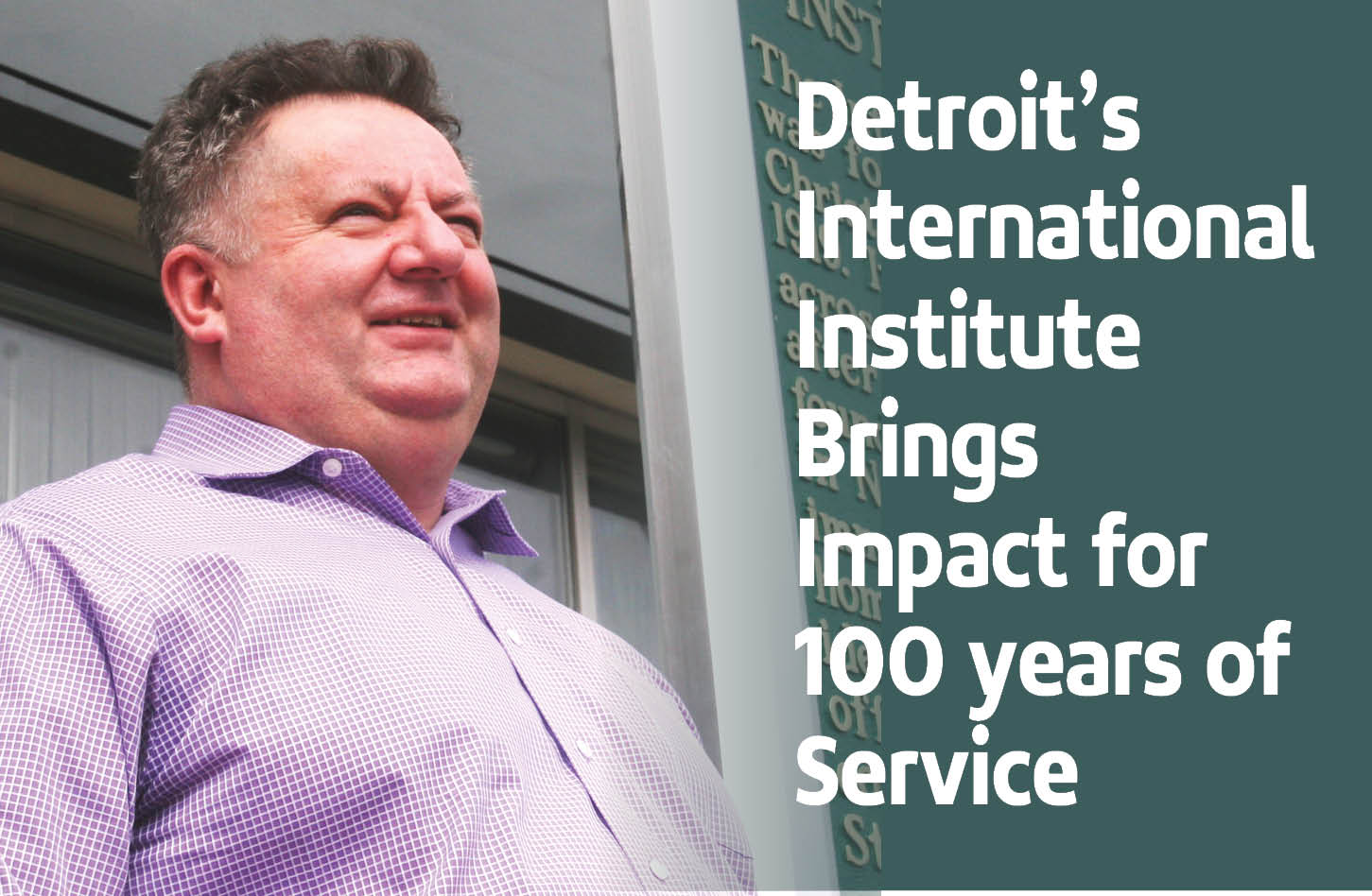By Simon Albaugh – YAN – Detroit

 Come to Warrendale, Southwest, Banglatown or Hamtramck and you’ll wonder what even happened to Detroit’s decades of decline. According to all estimates, people have been leaving the city for decades as opportunities grow in the suburbs. But one group of people have been faithfully aiding the city’s titanic resurgence.
Come to Warrendale, Southwest, Banglatown or Hamtramck and you’ll wonder what even happened to Detroit’s decades of decline. According to all estimates, people have been leaving the city for decades as opportunities grow in the suburbs. But one group of people have been faithfully aiding the city’s titanic resurgence.
No, it’s not any specific corporate office in one of the many Downtown high rises. It’s the diverse immigrant population coming into the city. In an Op-Ed written for the Detroit Free Press, one writer wrote about the importance of immigrants in stabilizing Detroit’s economy.
In a recent study, Detroit was named the 10th most welcoming city for immigrants. The study, done by advocacy group New American Economy, cited job opportunities, economic empowerment, and quality of life.
For over 100 years, the International Institute has been at the center of all this change. Now headed by Wojciech Zolnowski, the Institute’s work is closely tied to Detroit’s economic resurrection.
The International Institute of Detroit is a sort of one-stop shop for immigration services. Primarily focusing on family-based immigration petitions like family reunification or citizenship for heads of households, the Institute works with staff who all have an average of 35 years in Immigration Services.
“We just had one of our workers celebrate 40 years in Immigration work,” Zolnowski said. That worker is Nada Dalgamouni, a renowned community leader around Metro Detroit.
Having just celebrated their 100 years of service, the nonprofit International Institute decided to make one more giant impact on one of the neighborhoods of new-Americans. In Warrendale, where a vast immigrant population resettled, Zolnowski said he focused on everyone involved.
Warrendale was originally a good resettlement spot for many of the Middle Eastern immigrants who came to help support Detroit. By many accounts in other News Organizations, it’s documented that the people in Warrendale are especially business-minded people who helped fill in the void that many stores and services left vacant.
But the city came to the International Institute for an underlying issue. In a way, Warrendale wasn’t as welcoming as many resettlement agencies might’ve assumed.
“People were coming to our services saying, ‘There’s a white family chasing us with a car and four kids,’” Zolnowksi said. “So I said, ‘We have to engage the whole neighborhood in order to create this environment that everybody plays safe in the same sandbox.’”
For the International Institute’s 100 years of service, the organizers behind many of the assimilation efforts decided that a new, all-encompassing approach would be their finishing project for the century.
“You have to create an infrastructure that the neighbors know what’s going on and allow them to be a part of [the assimilation process,]” Zolnowski said. “So rather than have this plan and say ‘you guys figure it out,’ we started from the neighborhood and let the neighbors help with a solution on how to incorporate.”
Through funding from the community foundation, Kresge, United Way, and the Center for Working Families, the International Institute has been working to develop a shared space for everyone in the Warrendale Neighborhood.
The proposed community center will be an extension of services done by the International Institute. Designed as a welcoming space for New Americans and established Americans alike, the space will offer mental health, medical and social assistance to everyone in the Warrendale Neighborhood.
The intention will also be for a shared communal space for coffee and other soft drinks, where people can meet and mingle. There’s also a hope that this model for community spaces can be added to many of the other neighborhoods where New Americans are establishing a life in Detroit.
Zolnowski says he shares the opinion with many of the city’s leaders that the economic future of rustbelt metropolises like Detroit depends on the economic assistance of people moving in.
In those terms, Zolnowski explains, “people should realize that the bottom line could slow down if we don’t have a healthy and sound immigration policy. You know, we might be left behind because it’s a global economy now.”
By all estimates, Detroit is on the rise. Its population is on its way to growth again, after decades of decline. And organizations like the International Institute are at forefront of what could become a new era for the city of Detroit.
It’s always important to remember that Detroit has always been a welcoming city. First, French explorers came to colonize the area. Then German and polish immigrants arrived in the city. Even as the Great Migration brought many who wanted to escape the Jim Crow Southern violence, Detroit’s growth will always be defined by the people who come to make the city their home.












